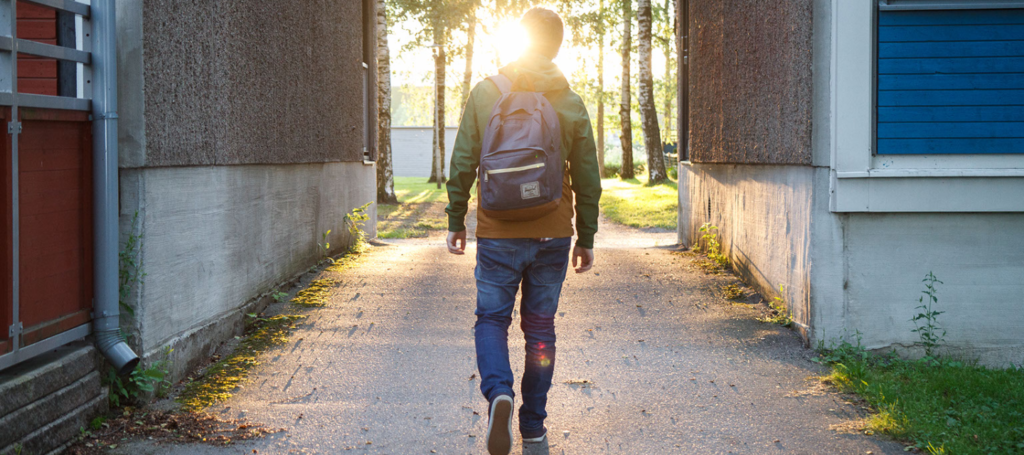
Turku School of Economics, in cooperation with the Association of Economics Students in Turku (TuKY), the Finnish Business School Graduates of Turku region and the Turku Chamber of Commerce, started a project aimed at reducing the loneliness and exhaustion experienced by students by finding them a tutor, an alumni, an adult buddy of former Turku School of Economics students.
Purpose
As a result of the corona pandemic, the loneliness of young students has increased as opportunities for face-to-face interaction with their own fellow students and peers have become significantly more difficult. Distance learning limits social interaction and study friendship does not arise as naturally as before. There is also a new group of young people in our society who have never experienced loneliness before. Social relationships are especially important for young people, and by volunteering, we can alleviate the absence of an adult friend who has taken a student trail in the same field.
The Adult Buddy project is part of a broader campaign focusing on students’ mental health problems, which comes from the Healthy Mind peer support model developed by the Association of Economics Students in Turku (TuKY).
The Adult Buddy is aimed to be involved with the knowledge of his own life experience in students starting their studies during these challenging study periods. The need for support is frontloaded, especially in the early stages of studies. Alongside social support and life guidance for loneliness, the instructions of an alumnus already in working life for a student’s future career are valuable and welcome to many students in the face of difficulties.
Results
Pauliina Inervo, an alumnus of the Turku School of Economics, had the idea for the Adult Buddy project in the early spring of 2021. She contacted Terhikki Saari, the alumni coordinator of the Turku School of Economics. With the help of Dean Markus Granlund, Turku School of Economics began preparations for the project and co-operation with Turku KY’s Healthy Mind project. Later, the Finnish Business School Graduates of Turku region and the Turku Chamber of Commerce joined the project.
On March 17 in 2021, a Kick-off event was held for about a hundred interested alumni to tell more about the project. After the Kick-off event, there were a total of 70 alumni committed to the project.
After the Kick-off event, the formation of alumni-student pairs has taken place on the basis of the alumni committed to the project and the received student applications by TSE ry. The project is completely confidential: the information of the participating students is not published anywhere, and the adult peers are committed to keeping their information completely confidential. Therefore, exact information on the number of alumni-student pairs is not known.
Implementation
An Adult Buddy can act as a conversation friend, support in everyday life, help to start studies, a tutor for future working life, a local guide to Turku or even a jogging buddy. An Adult Buddy can also be someone you call once a week to tell stories or with whom you can discuss problems together. The Adult Buddy project is intended to be a low-threshold channel that allows a student to network and make a new like-minded friend. The project runs in six-month cycles, and new Adult Buddies will be sought each fall in the future. The first six months started in spring-21 because the need was acute and now in autumn-21 we are moving to a normal cycle. After the first six months, the friendship may be continued by mutual agreement or terminated if the parties did not find it appropriate. However, the student can jump into the project at any time.
Preventing loneliness and fatigue among students by involving alumni members that are able to relate to the challenges of the students provides an emphatic way to support people involved. The cooperation model built by the participating organizations enables an efficient and comprehensive approach to mobilize the support. This Planet Act scales for many types of organizations, but require an active coordination and operational role of at least one organization.

Responses